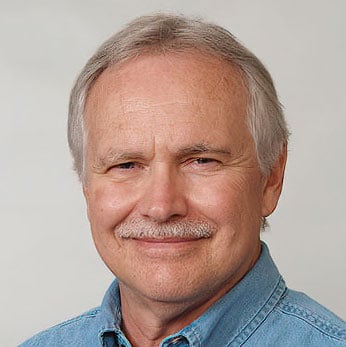This educational ISA webinar was presented by Greg McMillan in conjunction with the ISA Mentor Program. Greg is an industry consultant, author of numerous process control books, 2010 ISA Life Achievement Award recipient and retired Senior Fellow from Solutia Inc. (now Eastman Chemical).
In the ISA Mentor Program, I am providing guidance for extremely talented individuals from countries such as Argentina, Brazil, Malaysia, Mexico, Saudi Arabia, and the USA. This question comes from Danaca Jordan.
Danaca Jordan, CAP, is a Digital Manufacturing Center of Excellence engineer at Eastman Chemical Company.
Danaca Jordan's Question
How should the need for manual operation be handled?
Greg McMillan's Answer
If at all possible, manual actions should be eliminated to remove the discontinuity, inconsistency, and delay inherent in any human correction. The fastest and most abrupt and unpredictable disturbance is an operator action. The best of the operator actions can be automated and from increased pattern recognition from a consistent response be continuously improved. The magnitude of the opportunity was exemplified in the Control Talk column Show Me the Money – Part 1.
Operator manual activity is most intense during startup, transitions, and abnormal operations. The more an operator says a manual action cannot be automated the greater the opportunity as discussed in my modeling and control blog from yesteryear Exceptional Opportunities in Process Control – Startup and Abnormal Operation.
ISA Mentor Program
The ISA Mentor Program enables young professionals to access the wisdom and expertise of seasoned ISA members, and offers veteran ISA professionals the chance to share their wisdom and make a difference in someone’s career. Click this link to learn more about the ISA Mentor Program.
Given that there is a manual action required, consider slowing down transitions in manual operations by the use of velocity limits on the setpoints of PID and analog output (AO) blocks. Be sure to use the PID dynamic reset limit option in any controller trying to manipulate a velocity limited valve or flow setpoint to prevent the burst of oscillations when a PID output tries to change faster than the final control element or secondary loop can respond.
For an example of the importance of the dynamic reset limit see Shinskey’s article in Control magazine, The Power of External-Reset Feedback. Please refer to the ISA blog PID Controller Tuning Rules.
Additional Mentor Program Resources
See the ISA book 101 Tips for a Successful Automation Career that grew out of this Mentor Program to gain concise and practical advice. See the InTech magazine feature article Enabling new automation engineers for candid comments from some of the original program participants. See the Control Talk column How to effectively get engineering knowledge with the ISA Mentor Program protégée Keneisha Williams on the challenges faced by young engineers today, and the column How to succeed at career and project migration with protégé Bill Thomas on how to make the most out of yourself and your project. Providing discussion and answers besides Greg McMillan and co-founder of the program Hunter Vegas (project engineering manager at Wunderlich-Malec) are resources Mark Darby (principal consultant at CMiD Solutions), Brian Hrankowsky (consultant engineer at a major pharmaceutical company), Michel Ruel (executive director, engineering practice at BBA Inc.), Leah Ruder (director of global project engineering at the Midwest Engineering Center of Emerson Automation Solutions), Nick Sands (ISA Fellow and Manufacturing Technology Fellow at DuPont), Bart Propst (process control leader for the Ascend Performance Materials Chocolate Bayou plant), Angela Valdes (automation manager of the Toronto office for SNC-Lavalin), and Daniel Warren (senior instrumentation/electrical specialist at D.M.W. Instrumentation Consulting Services, Ltd.).
About the Author
Gregory K. McMillan, CAP, is a retired Senior Fellow from Solutia/Monsanto where he worked in engineering technology on process control improvement. Greg was also an affiliate professor for Washington University in Saint Louis. Greg is an ISA Fellow and received the ISA Kermit Fischer Environmental Award for pH control in 1991, the Control magazine Engineer of the Year award for the process industry in 1994, was inducted into the Control magazine Process Automation Hall of Fame in 2001, was honored by InTech magazine in 2003 as one of the most influential innovators in automation, and received the ISA Life Achievement Award in 2010. Greg is the author of numerous books on process control, including Advances in Reactor Measurement and Control and Essentials of Modern Measurements and Final Elements in the Process Industry. Greg has been the monthly "Control Talk" columnist for Control magazine since 2002. Presently, Greg is a part time modeling and control consultant in Technology for Process Simulation for Emerson Automation Solutions specializing in the use of the virtual plant for exploring new opportunities. He spends most of his time writing, teaching and leading the ISA Mentor Program he founded in 2011.
Connect with Greg:




